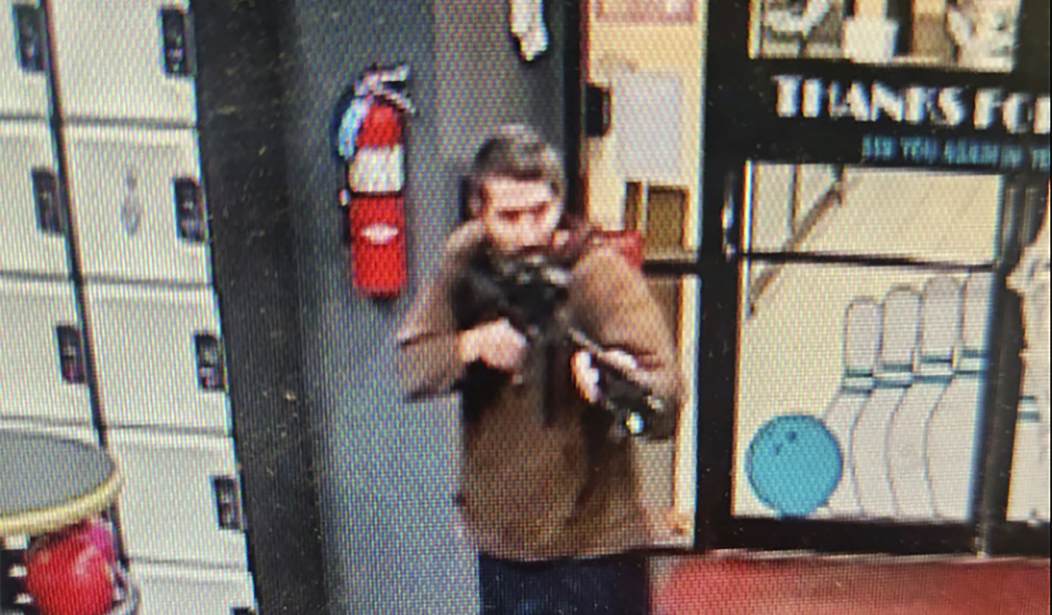Robert Card murdered 18 people on October 25 in Lewiston, Maine. He attacked a bowling alley and a restaurant during his senseless rampage. He vanished hours later but was later discovered having killed himself from a self-inflicted gunshot wound. Card had a history of severe mental illness, which led to a two-week stint at a mental health clinic last summer. He was hearing voices and threatened to attack a local National Guard base at nearby Saco. He was reportedly a 20-year Army veteran and a trained firearms instructor. New details shed more light on how this shooting was tragically preventable and why police were hesitant to confront Card despite all the red flags staring them in the face (via Associated Press):
Police who declined to confront an Army reservist in the weeks before he killed 18 people in Maine’s deadliest mass shooting feared that doing so would “throw a stick of dynamite on a pool of gas,” according to video released Friday by law enforcement.
The video, which was released to the Portland Press Herald and then sent to The Associated Press, documents a Sept. 16 call between Sagadahoc County Sheriff’s Sgt. Aaron Skolfield and Army Reserve Capt. Jeremy Reamer. Skolfield was following up with Reamer about the potential threat posed by Robert Card, 40, who carried out the Oct. 25 attacks at a bowling alley and a restaurant. He was found dead two days later of a self-inflicted gunshot wound.
Military officials alerted police in September that Card had been hospitalized in July after exhibiting erratic behavior while training, that he still had access to weapons and that he had threatened to “shoot up” an Army reserve center in Saco, a city in southern Maine. The sheriff’s department responded by briefly staking out the Saco facility and going to Card’s home in Bowdoin for what Reamer described as a “welfare check.”
[…]
Skolfield mentioned Maine’s yellow flag law, which can be used to remove guns from potentially dangerous people, after Reamer said Card had refused medical treatment after his hospitalization.
“So that, obviously, is a hurdle we have to deal with. But at the same time, we don’t want to throw a stick of dynamite on a pool of gas, either — make things worse,” he said.
Reamer expressed similar concerns. “I’m a cop myself,” he said. “Obviously, I don’t want you guys to get hurt or do anything that would put you guys in a compromising position.”
Recommended
So, police were, for lack of a better term, afraid to confront Card. In July, the Army deemed him unfit to own firearms:
Three months before the deadly shooting rampage in Lewiston, Maine, leaders of the gunman's Army Reserve unit said he was "behaving erratically," and the Army decided he shouldn't have a weapon, handle ammunition or "participate in live fire activity," according to an Army spokesperson.
[…]
After he underwent a medical evaluation over his behavior while training at the U.S. Military Academy in New York in July, the Army determined he was "non-deployable due to concerns over his well-being," Lt. Col. Ruth Castro, an Army spokesperson, said in a statement to CBS News. His company commander was notified of the restrictions, according to Castro.
In September, his unit asked the Sagadahoc County Sheriff's Office in southern Maine to perform a "health and welfare check" on the reservist, Castro said earlier Monday.
The request was made "out of an abundance of caution after the unit became concerned for his safety," Castro said. She didn't provide additional details, citing an ongoing Army investigation.
And this is why the story got snuffed out of the news cycle: there were laws already on the books that could’ve stopped this shooting. It’s all about how they’re enforced.

























Join the conversation as a VIP Member